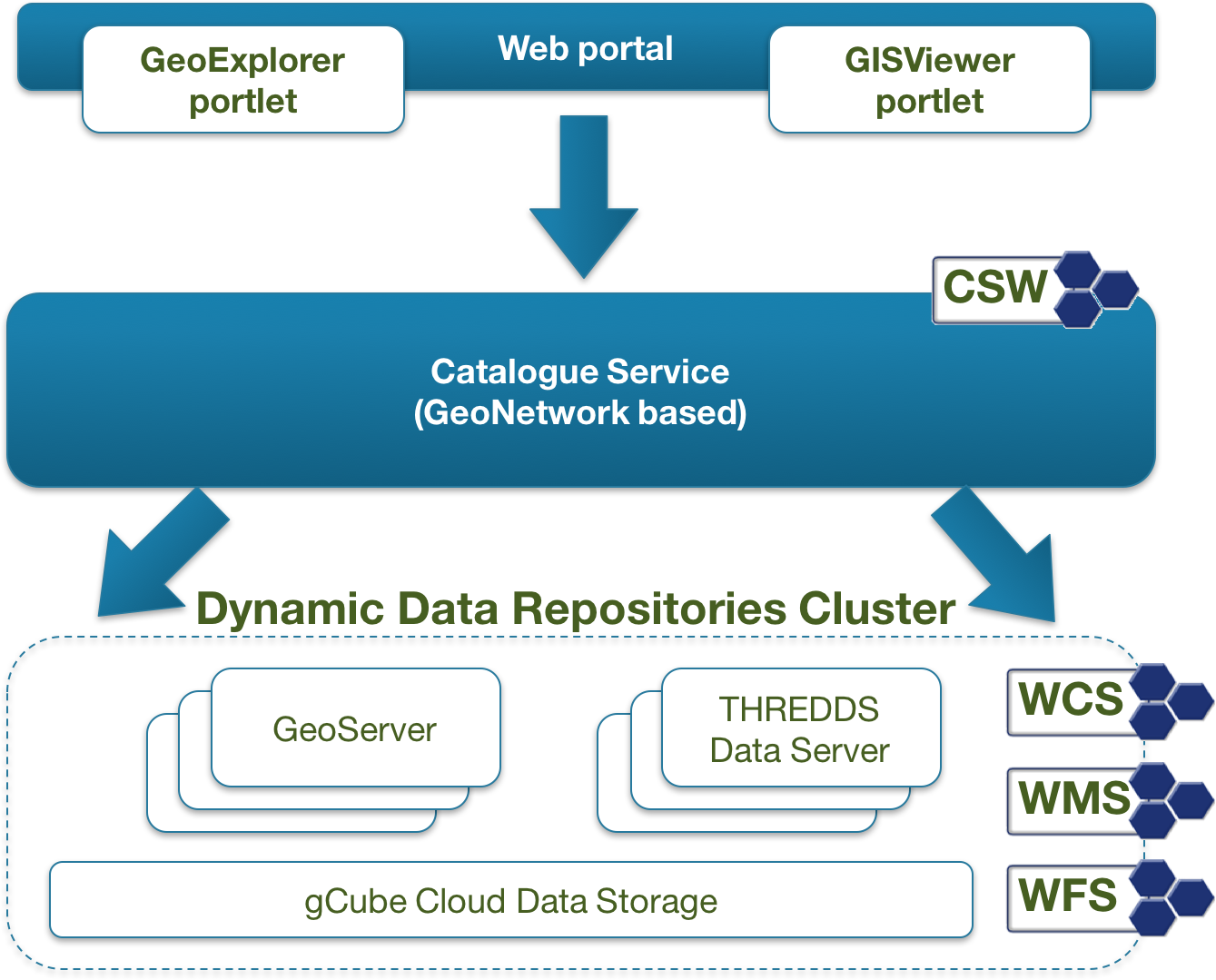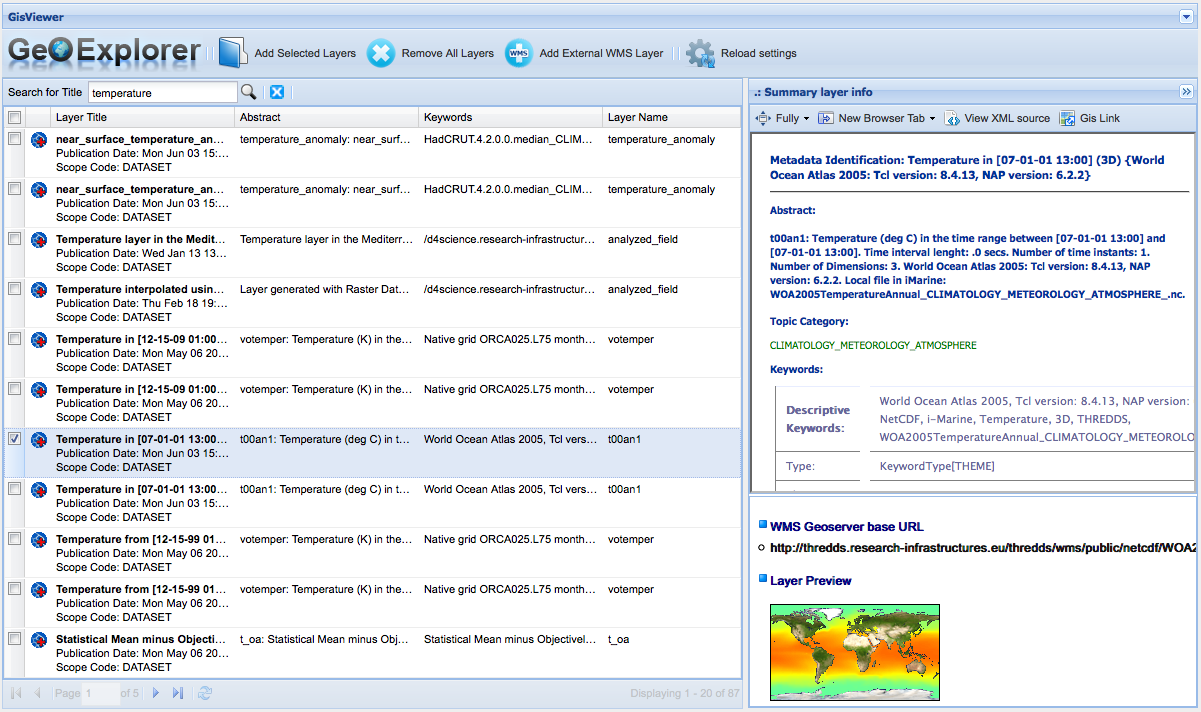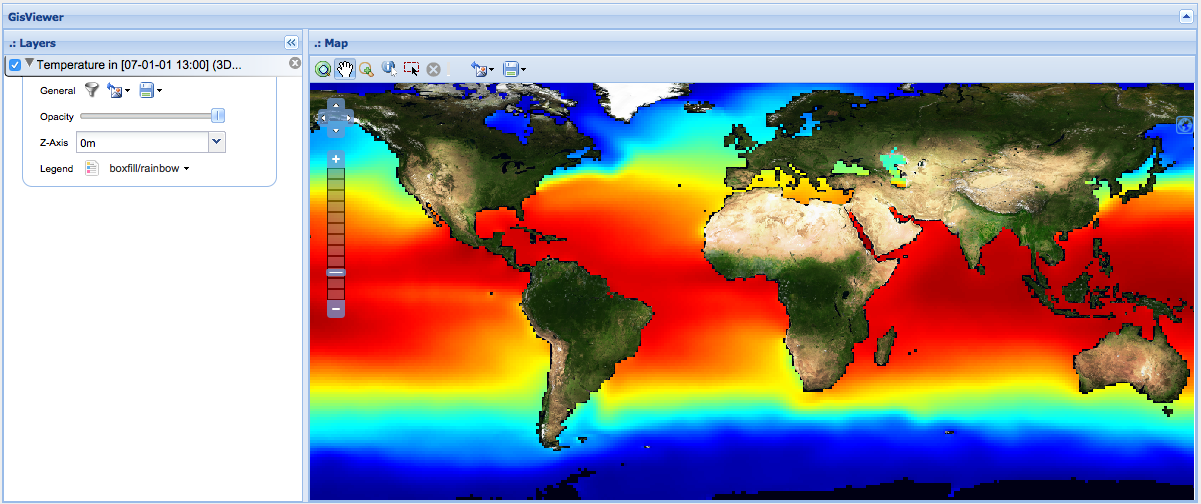Difference between revisions of "Spatial Data Discovery and Access"
(→Overview) |
m (→Subsystems) |
||
| Line 45: | Line 45: | ||
:a service providing a unique point of access to environmental features associated to coordinate points or to geographical areas. | :a service providing a unique point of access to environmental features associated to coordinate points or to geographical areas. | ||
| − | ; | + | ; [[Geo Explorer]] |
| − | :a web-based application that allows users to navigate, organize, search and discovery layers out of a CWS-enabled service; | + | : a web-based application that allows users to navigate, organize, search and discovery layers out of a CWS-enabled service; |
| − | ; | + | ; [[GIS Viewer]] |
| − | :a web-based application to interactive explore, manipulate and analyze spatial datasets. | + | : a web-based application to interactive explore, manipulate and analyze spatial datasets. |
Latest revision as of 16:07, 6 July 2016
Discovering geo-spatial information about some points of the ocean can be fundamental for performing data analysis on species behaviour and preferences. Furthermore it can be useful to scientists belonging to different communities who want to share their data or to have a complete vision of the environmental setup of some zones.
Geospatial Data Discovery includes functionalities for retrieving environmental information associated to some areas, in terms of physical and chemical properties.
This document outlines the design rationale and high-level architecture of such components.
Overview
Geospatial Data Discovery and access provides the following facilities:
- the ability to retrieve information which is yet stored and available in the infrastructure;
- the ability to retrieve information which is stored on remote sites, collecting geospatial data;
- the ability to generate information for some points by using approximation techniques when necessary.
The entire system is then based on the following kinds of information datasets:
- Stored datasets: some physical or chemical features layer, containing information at a certain resolution, for a certain time period;
- Remote datasets: some physical or chemical features layer, stored on a remote site, to be discovered by means of searching techniques. They will refer to certain time and resolution;
- Potential datasets: some physical or chemical features which are not available for some points, but that can be produced by means of geospatial functions like kriging or resampling.
In summary, the Geospatial Data Discovery system provides distributed, searchable or to be generated, environmental features associated to geographical points or areas.
Key Features
- uniform model and access API over environmental data
- heterogeneous external datasources investigation;
- uniform access to OGC compliant services.
- pluggable external sources
- a plug-in based architecture allows for an easy attachment of new datasources.
- data consumption with OGC standard protocols
- it is possible to produce data under standard protocols like WFS, WCS, WMS etc.;
- it is possible to perform processing requests by means of standard protocols, like WPS.
Subsystems
Geospatial Data Discovery and Access comprises the following component:
- a service providing a unique point of access to environmental features associated to coordinate points or to geographical areas.
- Geo Explorer
- a web-based application that allows users to navigate, organize, search and discovery layers out of a CWS-enabled service;
- GIS Viewer
- a web-based application to interactive explore, manipulate and analyze spatial datasets.


